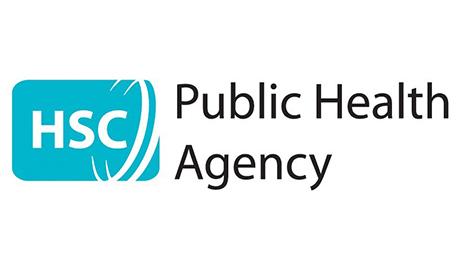Cervical Cancer Prevention Week: Screening Stories
Cancer / Women's HealthThis Cervical Cancer Prevention Week (21–28 January), the Public Health Agency (PHA) is reminding women of the importance of attending for cervical screening when invited. Katrina Jones from Belfast went for her routine cervical smear test in 2022 and after further investigations, found out she had cervical cancer.
Katrina said: “I just went for a routine smear test and didn’t think anything of it. They called me back and I then had a biopsy. I could actually tell by the look on their faces that I had cancer.
“I was expecting to be told I had cancer but thought I’d maybe have a few little cells that needed removed. But no, I had a 4cm tumour and I needed to have both chemotherapy and radiotherapy.”
Between 2017 and 2021, there was an average of 81 people diagnosed with cervical cancer annually in Northern Ireland, with around 20 deaths per year.
Screening is mainly aimed at detecting early changes that could go on to develop into cancer, which can then be treated to try to prevent this happening, although in some cases such as Katrina’s cancer may be found.
Dr Joanne McClean, Director of Public Health at the PHA, said: “Cervical cancer is one of the few cancers that can be prevented thanks to screening, so it is really important to attend for cervical screening when invited. It could save your life.”
Nearly all cervical cancers are caused by persistent infection with human papillomavirus, known as HPV. It is a very common virus – about 8 out of 10 people catch it at some point in their lives. The virus usually causes no symptoms and is mainly spread by skin-to-skin contact during sexual activity. In most cases, the body’s immune system will clear the virus and it doesn’t cause any problems, but in some people the virus can stay in the body for many years.
Katrina had her treatment and she is now in recovery. She added: “If it wasn’t for the screening, I probably wouldn’t be here today. It’s as simple and black and white as that. If you are invited for screening, please do it, it makes such a difference and saved my life.”
“If anyone is going through something similar to me, I’d recommend reaching out to the likes of Cancer Focus NI who have some great support services and advice.”
Cervical screening, as with all screening programmes, doesn’t guarantee that cancer will not develop in the future, as a cancer could develop between screening tests, and there is a small chance that the screening test could miss very small changes in the cervix. However, attending for regular screening tests, when invited increases the chances of any changes that have developed being be picked up quickly.
Dr McClean added: “As well as attending screening appointments, we would also urge people to familiarise themselves with the signs and symptoms of cervical cancer, including vaginal bleeding after sex, between periods or after the menopause; vaginal discharge that is not normal for you; persistent back or tummy pains; and/ or pain during sex,”
“You may feel worried if you do notice any of these symptoms, but it’s important to be checked by a GP if you do. If you feel something isn’t normal at any time, contact your GP.”
Dr Jennifer Cullen, GP Partner at Banbridge Group Surgery, has urged women to attend for screening and contact their GP if they have concerns about symptoms. She said: “Some people can feel a bit anxious discussing these topics but we deal with these issues on a regular basis as GPs. We really encourage women to reach out if they are experiencing any symptoms of cervical cancer or have any concerns about their upcoming screening appointment.”
The HPV vaccine also helps to prevent HPV-related cancers from developing in young people. It is a one dose programme which is offered to pupils in Year 9 and given as an injection in the upper arm, the same way as many other vaccines.
Dr McClean concluded: “The HPV vaccine will help protect your child against HPV infection and associated cancers, including over 90% of cervical cancers in women, and cancers of the mouth, throat, anus and genitals in men and women, and against genital warts.
“When a young person receives the vaccine, their body will react by making antibodies that will help the immune system fight HPV infection. The vaccine cannot cause HPV infection or cancer. If you have been eligible for the vaccine but have not received it in school, you can still receive it free of charge until the age of 25. You can find out if you are eligible by contacting your GP surgery.
“Cervical cancer is a cancer that we can help prevent thanks to the HPV vaccination and cervical cancer screening programmes. We are confident that with good uptake of both we can drive down rates of cervical cancer to the point where it can almost be eliminated in years to come.”
Please see the following websites for further information.
- PHA site: www.pha.site/CervicalScreening
- NI Direct – Cervical Screening: www.nidirect.gov.uk/articles/cervical-screening
- HPV: www.pha.site/HPVvaccination
- NI Direct – human papillomavirus (HPV): www.nidirect.gov.uk/conditions/human-papillomavirus-hpv
If this news has raised any cancer concerns for you, you can call Cancer Focus NI’s Nurseline on 0800 783 3339 (Mon, Wed, and Fri 9am–1pm) to talk about any cancer related issue or to find out more about the charity’s cancer support services.

















































































































